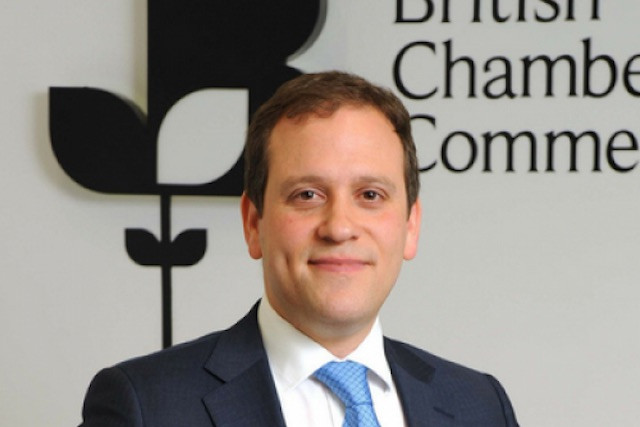In further a sign of the growing frustration over the government’s handling of Brexit, the head of the British Chambers of Commerce, Adam Marshall, called on MPs to end three years of going round in circles over the best way to leave the EU and urged them to take tough decisions to break the impasse.
He said MPs should avoid a no-deal departure and either throw their support behind Theresa May’s deal, trigger a long delay in the article 50 process, or revoke Brexit and remain in the EU.
“Our elected representatives cannot keep chasing rainbows,” he said. “Like all of us in business, they need to start making tough decisions, however personally or politically difficult they might be.”
Speaking at the lobby group’s annual conference in Westminster hours after MPs had rejected all eight alternative proposals to the prime minister’s withdrawal agreement, he said a “Brexit black hole” was sapping the vitality of the economy.
“[Business is] counting the cost of uncertainty as the political impasse at Westminster continues. In many parts of our economy, real-world damage is happening right now,” he said.
Two cabinet ministers, chief secretary to the Treasury Liz Truss, and David Lidington, who is May’s de facto deputy, later told the audience of business leaders from across the country that May’s deal was the only option.
“There’s a dawning realisation the deal the prime minister set out is the deal that will allow us to move forward as country,” Truss said.
Lidington said: “Whether a particular MP wants the final destination to look like Norway or look like Canada or look like the proposals in the Chequers white paper, the starting point is the withdrawal agreement itself.”
Keir Starmer, Labour’s shadow Brexit secretary, used a speech later at the conference to warn that passing the withdrawal agreement would spark a Tory leadership contest, leading to a “Boris Johnson Brexit, a Jacob Rees-Mogg Brexit, or a Michael Gove Brexit”.
The warnings from business leaders come amid growing signs that the Brexit impasse is causing damage to the economy. Alison Rose, the chief executive of commercial and private banking at Royal Bank of Scotland, told the conference that its corporate customers had increasingly moved to pause their investment plans in Britain over the past three months.
“The uncertainty makes it very difficult for anyone running a business.
“Everyone today would agree that the uncertainty has gone on for far too long,” she said. “We’re at a point where decisions need to be made in terms of preparing for the worst – and that’s certainly what we’ve done.”
Richard Partington
